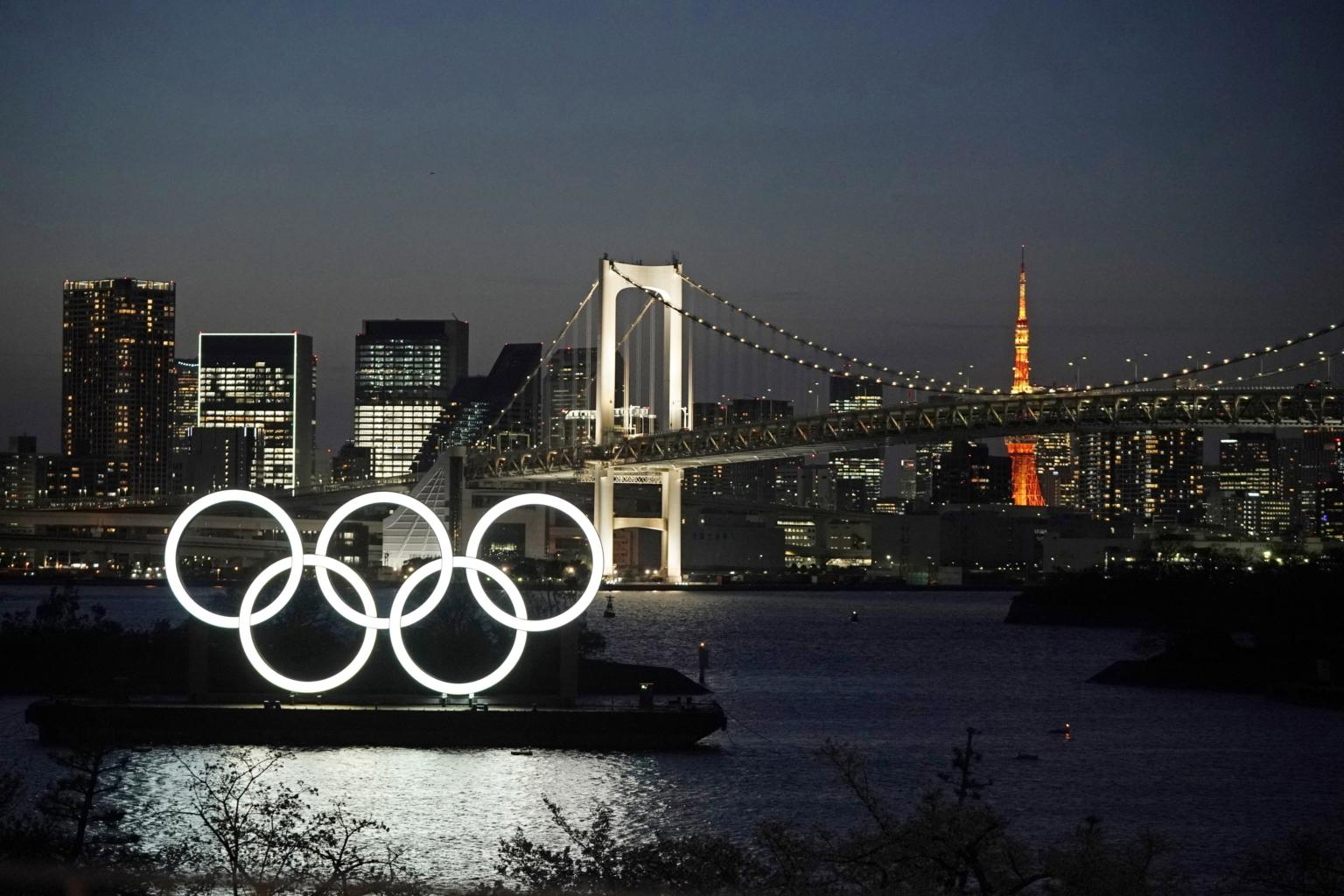Olympics: Mediacorp remains committed to broadcasting Tokyo Games in 2021
Sign up now: Get the biggest sports news in your inbox

A giant Olympic rings monument is seen at dusk at Odaiba Marine Park in Tokyo, Japan, on March 25, 2020.
PHOTO: EPA-EFE
Follow topic:
SINGAPORE - There is no change to Mediacorp's Tokyo Olympics broadcast rights despite the Games' year-long postponement and it remains "committed to provide a comprehensive coverage of Tokyo 2020 for our Singapore viewers when the Games start", the company told The Straits Times.
In March last year, Mediacorp said it was the first media company in South-east Asia to secure rights to the Tokyo Olympics and the 2022 Winter Games from Japanese agency Dentsu.
On Tuesday (March 24), the International Olympic Committee (IOC) announced the July 24-Aug 9 Summer Games would be pushed back to 2021.
Mediacorp declined to reveal the costs to secure the Tokyo Olympics. It reportedly spent about US$3.2 million ($4.6 million) for the previous Rio 2016 edition.
Analysts told ST as the Olympics is being rescheduled and not cancelled altogether, there may not be much changes to whatever Mediacorp had paid.
But if things change significantly - for example, countries boycott the Olympics or the programme is shortened - Mediacorp may seek to renegotiate and reduce the fees.
Singapore Management University associate professor of marketing Hannah Chang said handling broadcast rights on a global scale is one of the most complex aspects of rescheduling the Olympics as they are the single biggest contributor to the IOC's revenue.
She added:"Mediacorp obtained the broadcasting rights from Dentsu, who got it from IOC. This means there are different layers of conversations needed among these parties to work out possible solutions, given the rescheduling of the Olympic Games.
"Right now, given the substantial uncertainty around rescheduling of the Olympic Games, things are up in the air for discussion."
The national broadcaster themselves will have to look at its own programming and deals with advertisers, although the longer lead time could allow it to work with more commercial partners, said National University of Singapore's Jinna Tay.
The communications and new media senior lecturer noted: "It will be hard to say which organisations will be left standing after Covid-19, as many industries and businesses will be hit hard and some may not be able to pay the advertising and sponsor costs.
"But I assume many of them are large companies and will be able to take the hit and continue with their commitment to the Olympics.
"But there is already revenue loss in terms of lost scheduling, the labour involved in organising, contracting, distributing, and then having to do so again in a year, having to purchase new programs to fill the current schedule."
Despite the disappointment of an unprecedented delay - last time the modern Games were scrapped was during World War II - Dr Tay believes Olympic broadcast rights remains a strong product.
She said: "As Japan's PM Shinzo Abe mentioned, when the Tokyo Olympics returns, it will be a testament to human's ability to overcome a new virus, and perhaps globally people will be needing an event like this to come together to celebrate humanity in a new way.
"Perhaps Olympics may present itself as one of the first few celebratory global events to take place after such a devastation to humanity and lives lost."

